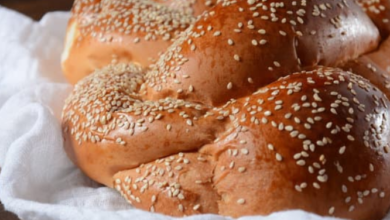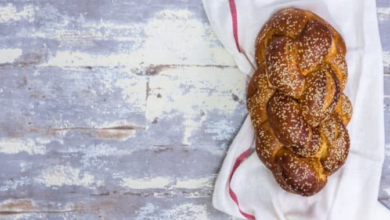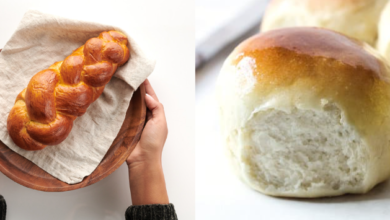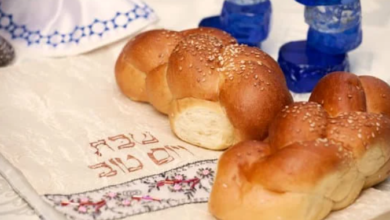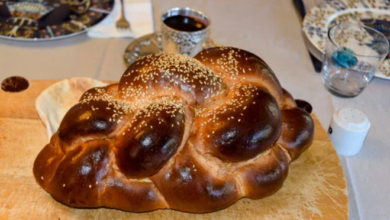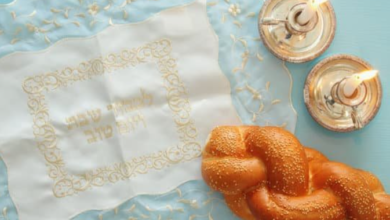Do You Know What Challah Bread Tastes like?
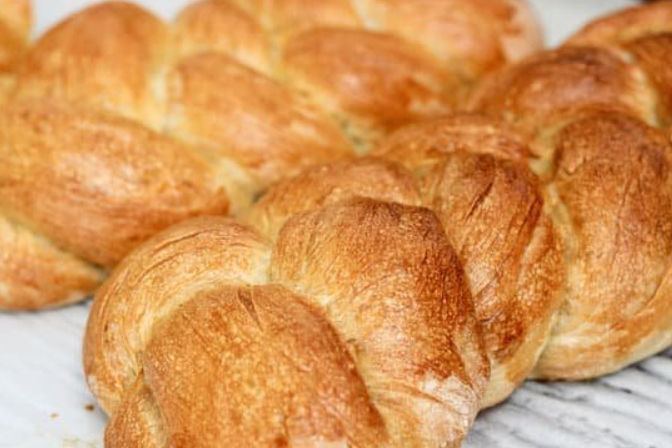
What To Know
- A higher proportion of eggs in the dough results in a richer, more custardy flavor.
- Its unique flavor profile, characterized by a delicate sweetness, a hint of nuttiness, a touch of saltiness, a buttery richness, and a subtle yeasty undertone, makes it a culinary delight for all.
- Challah bread typically has a subtle sweetness, but it can also be made savory by adding herbs or spices to the dough.
Challah bread, an iconic Jewish delicacy, tantalizes taste buds with its unique and captivating flavor. Its soft, fluffy interior and golden-brown crust create a harmonious balance that leaves an unforgettable impression. But what exactly does challah bread taste like? Let’s delve into the culinary tapestry of this beloved bread and explore its intricate flavors.
A Delicate Sweetness
Challah bread is characterized by a subtle sweetness that lingers on the palate. This sweetness originates from the use of honey or sugar in the dough, which enhances the bread’s overall flavor profile. The sweetness is not overpowering, but rather complements the other flavors, creating a harmonious balance.
A Hint of Nuttiness
The use of eggs in the challah dough imparts a subtle nutty flavor. The eggs add richness and a distinct depth to the bread, making it more complex and satisfying. The nutty undertones complement the sweetness, creating a well-rounded flavor experience.
A Touch of Saltiness
To counterbalance the sweetness, challah bread often incorporates a touch of saltiness. This saltiness is usually subtle, but it plays a crucial role in enhancing the other flavors and preventing the bread from becoming too cloying. The saltiness adds a savory dimension that complements the sweet and nutty notes.
A Buttery Richness
Many challah recipes call for the addition of butter or oil to the dough. This fat component contributes to the bread’s rich and velvety texture. The butter or oil melts during baking, creating a moist and tender crumb that melts in your mouth.
A Hint of Yeast
The yeast used in the fermentation process contributes a subtle yeasty flavor to challah bread. This flavor is not overpowering, but it adds a touch of complexity and depth to the overall taste. The yeasty undertones enhance the bread’s aroma and create a sense of freshness.
Variations in Flavor
While the above flavors are common to most challah breads, there are some variations in taste depending on the specific recipe and ingredients used. For example:
- Egg Challah: A higher proportion of eggs in the dough results in a richer, more custardy flavor.
- Honey Challah: Using honey instead of sugar imparts a more floral and aromatic sweetness.
- Savory Challah: Adding herbs or spices to the dough creates a savory challah with a unique twist.
Conclusion: A Culinary Delight for All
Challah bread is a versatile and delectable treat that can be enjoyed on its own or paired with various accompaniments. Its unique flavor profile, characterized by a delicate sweetness, a hint of nuttiness, a touch of saltiness, a buttery richness, and a subtle yeasty undertone, makes it a culinary delight for all. Whether you’re celebrating a special occasion or simply craving a comforting snack, challah bread will tantalize your taste buds and leave you craving more.
Frequently Asked Questions
Q: Is challah bread sweet or savory?
A: Challah bread typically has a subtle sweetness, but it can also be made savory by adding herbs or spices to the dough.
Q: What is the texture of challah bread like?
A: Challah bread has a soft, fluffy interior and a golden-brown, slightly crispy crust.
Q: What are some popular ways to eat challah bread?
A: Challah bread can be eaten on its own, toasted with butter or jam, or used to make French toast or sandwiches.
Q: How long does challah bread stay fresh?
A: Challah bread can stay fresh for up to 2 days at room temperature or up to 5 days in the refrigerator.
Q: Can challah bread be frozen?
A: Yes, challah bread can be frozen for up to 3 months.
